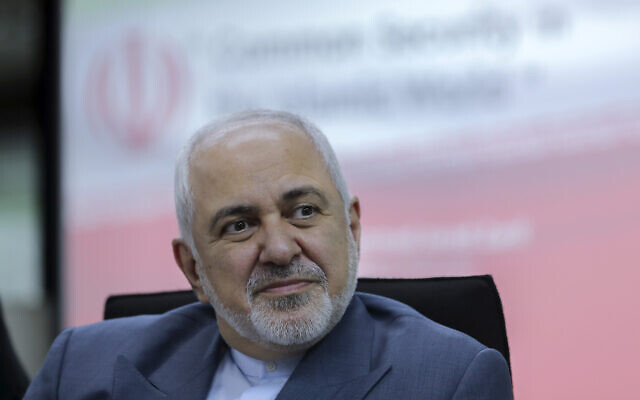
Ahead of expected efforts to reconstitute Iran’s nuclear deal with world powers, the Islamic Republic’s foreign minister has warned that his country would not accept changes to the terms of the 2015 pact.
Writing in Foreign Affairs on Friday, Mohammad Javad Zarif said that Iran’s “return to the table will be jeopardized if Washington or its EU allies demand new terms for a deal that was already carefully constructed through years of negotiations.”
US President Joe Biden has indicated his desire to return to the Joint Comprehensive Plan of Action, as the deal is known, while Israel is pushing for any return to the agreement to include fresh limitations on Iran’s ballistic missile program and support for terror and destabilization around the world.
Despite guarded optimism from both sides, there has been no sign of any movement toward common ground on the JCPOA during Biden’s first week in office.
Meanwhile, on Saturday night, US National Security Adviser Jake Sullivan spoke with his Israeli counterpart Meir Ben-Shabbat, and promised to consult closely on regional security, Walla reported.
“I will offer Tehran a credible path back to diplomacy,” promised Biden as a candidate back in September. “If Iran returns to strict compliance with the nuclear deal, the United States would rejoin the agreement as a starting point for follow-on negotiations.”
Iranian President Hassan Rouhani said in December that he was “not overjoyed” at Biden’s victory, but he was happy that Donald Trump was leaving office. Rouhani also called Trump a “terrorist.”
Zarif also said Friday that if the US began by “unconditionally removing, with full effect, all sanctions imposed, reimposed, or relabeled since Trump took office,” Iran would reverse the measures it has taken since the American withdrawal from the deal in 2018.
The JCPOA was signed by Iran and six world powers known as the P5+1 in 2015. Then-president Trump unilaterally pulled the US out of the deal in 2018, opting instead for a “maximum pressure” sanctions effort.
Since 2019, Tehran has suspended its compliance with most of the limits set by the agreement in response to Washington’s abandonment of sanctions relief and the failure of other parties to the deal to make up for it. READ MORE
